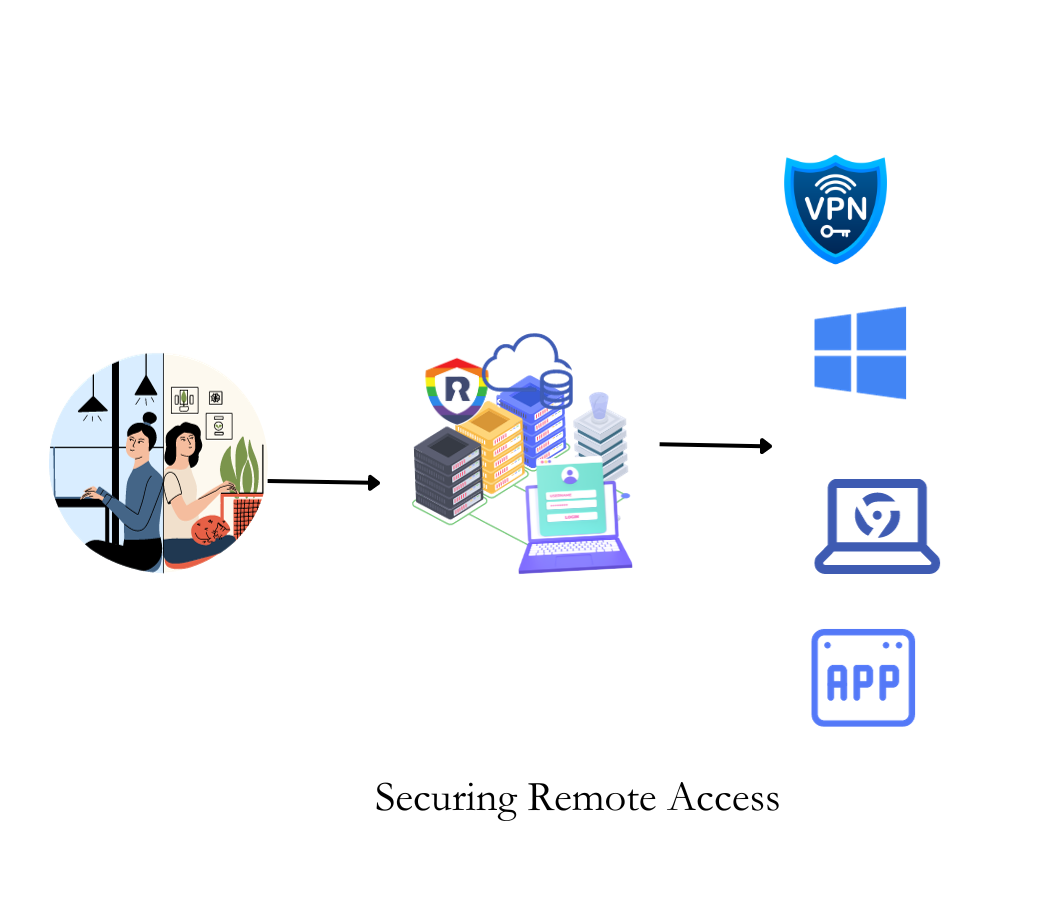Discover The Best SSH Remote IoT Solutions For Raspberry Pi & More!
Are you struggling to securely manage your IoT devices, especially those powered by a Raspberry Pi, from afar? Understanding and implementing the right SSH (Secure Shell) tools is not just beneficial, but essential for maintaining a robust and accessible IoT setup.
In today's interconnected world, the ability to remotely access and control devices is paramount. The Internet of Things (IoT) has revolutionized countless industries, from smart homes to industrial automation. Managing these devices, however, presents a unique set of challenges. One of the most critical is ensuring secure remote access. This is where SSH, a cryptographic network protocol, comes into play. SSH provides a secure channel for remote access, enabling users to execute commands, transfer files, and manage devices over a network. While SSH itself is a powerful protocol, the choice of SSH client can significantly impact the ease of use, security, and overall performance of your remote access setup.
Putty, a popular choice, is a client program for SSH, that allows you to establish secure remote sessions. It's a free and open-source tool, originally developed for Windows, but it also runs seamlessly on macOS and Linux. Putty's versatility extends to its ability to control SSH encryption keys, although it uses its own key file format. This makes it a reliable option for individuals looking to enhance their IoT setup and enhance remote access.
The security landscape of IoT devices is constantly evolving. With the increasing sophistication of cyber threats, securing remote connections is no longer optional; it's a necessity. SSH provides a foundation of security through encryption and authentication. When you combine these protocols with robust SSH clients, such as Putty and Bitvise, you create a fortified environment that protects your devices from unauthorized access and data breaches. In choosing an SSH client, it is important to consider factors like ease of use, key management capabilities, and the overall security posture it offers.
Choosing the right SSH client is akin to selecting the right tools for a construction project. You need tools that are reliable, easy to use, and capable of handling the specific requirements of the job. Some SSH clients are available for free, but not all meet the standards that users look for in these types of tools. Many clients provide basic functionality; however, a robust client should offer features like key management, file transfer capabilities (SFTP or SCP), and the ability to handle different authentication methods.
Many options are available. When it comes to choosing an SSH remote IoT tool for your Raspberry Pi, a single search can offer several options. In this article, we will explore some of the best free tools that offer robust features and excellent performance.
For those using Raspberry Pi devices in their IoT setup, this is especially relevant. Raspberry Pis are commonly used as the central hub for many IoT projects, making their remote management capabilities a core requirement. SSH is the most common method for remotely accessing a Raspberry Pi. Understanding and implementing the right SSH client is not just beneficial, but also essential for maintaining a robust and accessible IoT setup.
The ability to remotely access and control devices is more than a convenience; it is a core functionality in many IoT deployments. Managing these devices often requires secure remote access, making SSH a crucial component. SSH provides a secure channel for remote access, enabling users to execute commands, transfer files, and manage devices over a network. While SSH itself is a powerful protocol, the choice of SSH client can significantly impact the ease of use, security, and overall performance of the remote access setup.
The basic program has no security, but you can combine it with ssh to add on authentication and encryption to protect remote connections across the internet. SSH is a cryptographic network protocol that has several different client options available. By default, ssh key management is fragmented and complex. These unmanaged ssh keys are vulnerable to attack by malicious actors. With remote IoT SSH key management, you can centrally manage and discover all authentication keys and ssh login files.
Lets examine some of the best tools that offer robust features and excellent performance.
Bitvise SSH Client: A free Windows tool that works independently as a standalone application, Bitvise is a strong contender for your SSH needs. It is also designed to work well with the Bitvise SSH server, although its SSH client functions well independently. Bitvise SSH Client works on Windows OS and is free forever. Bitvise SSH Server is free for the first 30 days.
Putty: Putty is a terminal emulator. It enables you to log into another computer, which may be on the same network or that could be accessed over the internet. It is a terminal emulator that is widely used for SSH sessions. One of the main features is that it allows you to run a remote secure session over a network. Putty is open-source and runs on multiple operating systems including Windows, macOS, and Linux.
Considerations when choosing an SSH client for your IoT setup:
- Operating System Compatibility: Does the client work on your target device's OS?
- Ease of Use: Is the user interface intuitive?
- Security Features: Does it support key-based authentication and other security best practices?
- Key Management: How does the client handle SSH keys?
- File Transfer: Does it support SFTP or SCP for easy file transfer?
The process of choosing an SSH client can feel overwhelming, but the benefits of secure and efficient remote access far outweigh the effort. Prioritize security, ease of use, and features that meet your specific IoT project needs. With the right client, you can manage your devices with confidence, knowing that your data and systems are protected.
In essence, SSH clients are not just tools; they are crucial components in a well-managed IoT infrastructure. They bridge the gap between you and your devices, ensuring that you can monitor, manage, and secure your IoT ecosystem from anywhere in the world. By investing time in choosing the right SSH client, you're investing in the long-term security and functionality of your IoT projects.
Top 13 Best Free and Open Source SSH Clients:
Several SSH clients are available, each with its own strengths and weaknesses. It allows you to log in to any different computer; it is using the SSH protocol. This protocol will provide authentication. It offers a file transfer. Besides SSH, it supports SFTP and SCP protocols to connect your computer to a remote machine. It is essential to choose a client that best fits your requirements. Consider factors like compatibility with your operating system, ease of use, and available features.
Here are some of the best terminals or SSH apps you can use right away.
Servers and remote desktops are the two most important products of it. Servers serve the users and clients by processing data, hosting applications, and processing transactions. By leveraging the correct SSH client, you can easily connect, execute commands, and administer your server from anywhere.
Remember, the right SSH client simplifies remote access, but it also enhances the security of your IoT setup. It gives you control over the SSH encryption key, and it uses its own format of key files. Choose wisely, and secure your IoT devices!

Best Remote IoT VPC SSH Raspberry Pi Free The Ultimate Guide

Discover The Best RemoteIoT SSH Free For Secure Remote Access

Best RemoteIoT SSH Free Your Ultimate Guide To Secure Remote Access